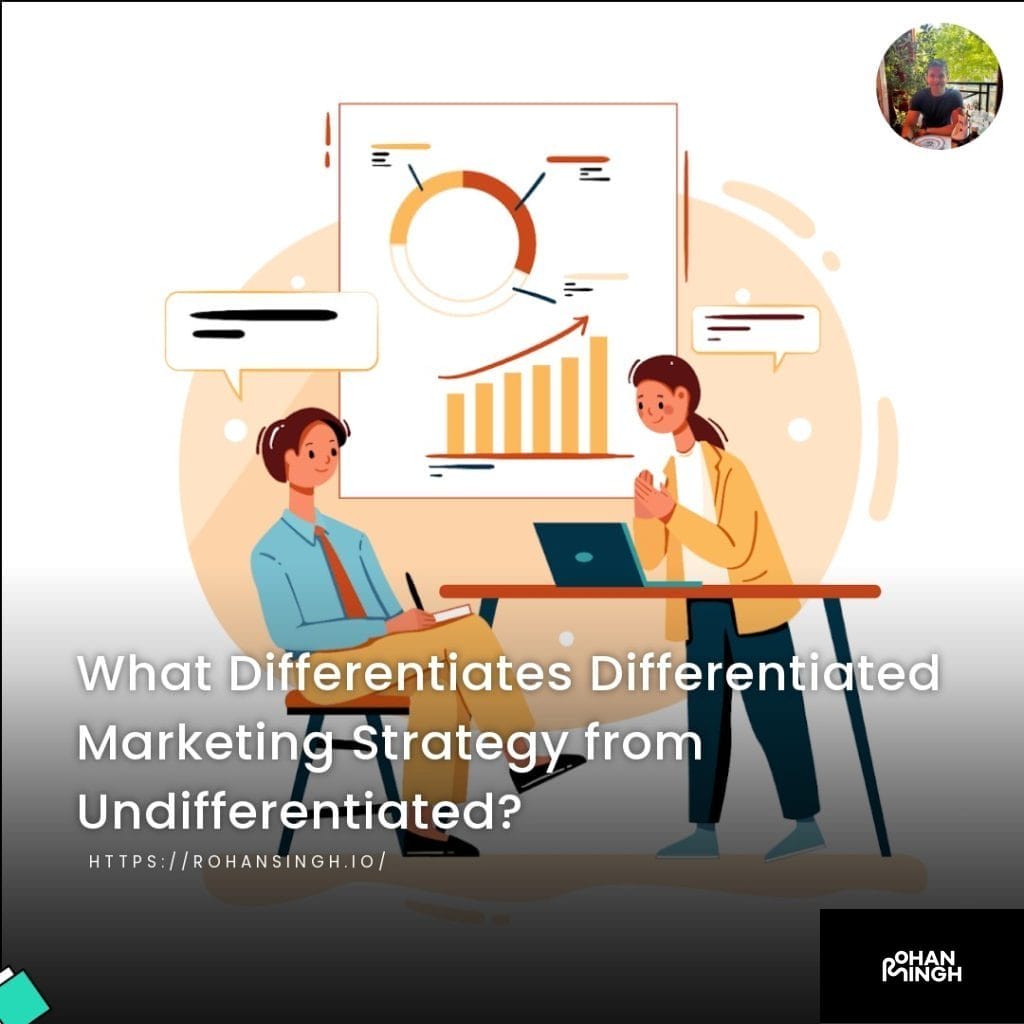Transform Your Marketing Strategies with AI: How and Why?

What is AI?
Artificial intelligence (AI) is revolutionizing the way businesses operate and has the potential to transform marketing strategies. AI refers to the development of computer systems that can perform tasks that typically require human intelligence, such as speech recognition, decision-making, and problem-solving. By harnessing the power of AI, businesses can gain valuable insights, make data-driven decisions, and enhance their marketing efforts to better engage with their target audience.
Table of Contents
ToggleAI is a technology that enables machines to learn from data, analyze patterns, and make informed decisions. It encompasses various subsets, including machine learning and deep learning. Machine learning algorithms allow computers to automatically learn and improve from experiences without being explicitly programmed, while deep learning algorithms mimic the functioning of the human brain’s neural networks to process vast amounts of complex data.
AI in Marketing:
Incorporating AI into marketing strategies can benefit businesses in numerous ways. AI-powered tools can help analyze customer behaviors, predict future trends, personalize customer experiences, and generate valuable insights. By leveraging AI, marketing teams can automate routine and repetitive tasks, freeing up time to focus on more creative and strategic initiatives. AI also enables businesses to create personalized content and recommendations, improving customer satisfaction and fostering stronger relationships with customers.
Transforming Marketing Efforts:
AI can revolutionize the marketing landscape by providing marketers with actionable insights and empowering them to make data-driven decisions. With AI-powered analytics, businesses can track key performance indicators, analyze campaign performance, and optimize marketing campaigns in real-time. This technology can also enhance customer journeys by delivering personalized experiences and recommendations, resulting in higher conversion rates and increased customer engagement.
In conclusion, incorporating AI into marketing strategies can transform how businesses engage with their target audience. By utilizing AI-powered tools and technologies, businesses can gain a competitive edge, make informed decisions, and provide personalized experiences to customers. As AI continues to advance, it is becoming an essential component of the digital marketing strategy for businesses of all sizes.
Benefits of Incorporating AI into Your Marketing Strategies
In today’s digital age, incorporating artificial intelligence (AI) into marketing strategies is no longer a luxury but a necessity. AI has the power to transform marketing efforts, offering a multitude of benefits for businesses. By harnessing the potential of AI, marketing teams can increase efficiency, analyze vast amounts of data, enable personalized experiences, and automate routine tasks.
One of the key benefits of incorporating AI into marketing strategies is increased efficiency. AI-powered tools and applications can automate repetitive tasks, freeing up valuable time for marketers to focus on more strategic initiatives. This allows for streamlined workflows and better resource allocation, ultimately leading to improved productivity and cost savings.
Moreover, AI’s ability to analyze large amounts of data is a game-changer for marketers. With AI-powered analytics, businesses can gain valuable insights and make data-driven decisions. AI algorithms can sift through massive datasets, uncovering patterns, trends, and customer behaviors that were previously difficult to identify. This deeper understanding of consumer preferences and trends allows for more targeted and effective marketing campaigns.
Personalization is another crucial benefit of AI in marketing. With AI-powered tools, businesses can create personalized experiences and recommendations for their target audience. By leveraging customer data and AI algorithms, marketers can deliver relevant content, product recommendations, and offers tailored to individual customer needs and preferences. This level of personalization enhances customer engagement, loyalty, and satisfaction.
Furthermore, AI enables automation of marketing tasks, freeing up time for marketers to focus on high-value activities. From email marketing campaigns to social media scheduling, AI-powered automation tools can streamline and optimize routine marketing tasks. This not only saves time but also ensures consistency and accuracy across various marketing channels.
Incorporating AI into marketing strategies offers a transformative impact on businesses. By increasing efficiency, enabling data analysis, personalizing experiences, and automating tasks, AI empowers marketers to achieve higher engagement, loyalty, and return on investment (ROI). In the dynamic and competitive marketing landscape, harnessing the power of AI is not just an option but a necessity for businesses seeking to stay ahead and transform their marketing efforts.
Let's talk about your future project!
Eager to collaborate on your upcoming endeavor? Let's explore and ignite the potential of your next big idea, shaping a promising future together!
Understanding Your Target Audience
In today’s rapidly evolving marketing landscape, understanding your target audience is crucial for the success of your marketing efforts. By harnessing the power of artificial intelligence (AI), you can gain deeper insights into your customers and create highly targeted and personalized marketing strategies. AI-powered tools and applications can analyze vast amounts of data, such as customer demographics, purchase history, online behavior, and social media interactions, to uncover valuable insights that can inform your marketing decisions. This transformative technology allows you to go beyond traditional market research methods, enabling you to better understand customer preferences, predict their needs, and anticipate their behaviors. With AI, you can deliver personalized content and offers at the right time, through the right channels, to the right audience, maximizing your chances of successfully converting leads into loyal customers. By leveraging AI to understand your target audience, you can gain a competitive edge in today’s data-driven marketing landscape.

Analyzing Your Existing Data
In today’s data-driven marketing landscape, incorporating artificial intelligence (AI) into your marketing efforts can provide valuable insights and transform your marketing strategy. AI analytics and machine learning techniques allow you to analyze your existing data in a way that is not only efficient but also highly effective in driving results.
By leveraging AI tools, you can uncover key customer insights, identify patterns, and establish data relationships that would have been difficult or time-consuming to do manually. These tools can sift through vast amounts of data in real-time, providing you with actionable insights that can inform your marketing decisions.
One of the primary benefits of analyzing your existing data with AI is the ability to personalize customer experiences. By understanding your target audience’s behaviors, preferences, and needs, you can create relevant content and personalized recommendations that resonate with them. This level of personalization leads to higher conversion rates, increased customer satisfaction, and stronger relationships with customers.
Moreover, by utilizing AI-powered tools, you can automate routine tasks such as data collection, analysis, and reporting, freeing up your marketing team’s time to focus on more strategic activities. This not only improves efficiency but also allows your team to make data-driven decisions based on reliable insights.
Incorporating AI into your marketing strategy gives you a competitive edge in the digital marketing space. It enables you to understand your customer journeys, optimize your marketing campaigns, and deliver a personalized experience that drives conversions. By leveraging data analysis, AI analytics, and machine learning techniques, you can unlock the transformative power of AI and take your marketing efforts to new heights of success.
Segmenting Your Target Audience
In the evolving landscape of digital marketing, segmenting your target audience is crucial for creating effective and personalized campaigns. Utilizing AI-powered tools can transform your marketing strategy by gathering relevant data and applying advanced analytics techniques.
Segmentation involves dividing your audience into distinct groups based on specific characteristics such as demographics, behaviors, or interests. By doing so, you can tailor your messages and offerings to meet the unique needs and preferences of each segment.
AI tools enable you to gather relevant data from multiple sources, such as social media, website interactions, and customer feedback. This data can provide valuable insights into your audience’s behaviors, preferences, and purchase intentions. By leveraging AI analytics, you can identify patterns and establish data relationships that were previously challenging to uncover manually.
Understanding customer personas is another crucial aspect of effective audience segmentation. By taking into account factors like age, gender, location, and interests, you can create detailed personas that represent different segments of your target audience. These personas serve as a foundation for devising personalized marketing strategies.
With programmatic advertising, AI-powered platforms can automate the process of delivering targeted ads to specific audience segments. These platforms use real-time data to optimize ad placements, ensuring that your campaigns reach the most relevant audience at the right time. This personalized approach enhances the chances of engagement and conversion.
Incorporating AI into your segmentation efforts not only saves time but also enhances the accuracy and effectiveness of your campaigns. By transforming your marketing strategy through AI-powered tools and data-driven insights, you can create targeted and personalized campaigns that resonate with your audience, improve conversion rates, and drive business growth.
Leveraging AI-Powered Tools to Gather Insights
In today’s rapidly evolving marketing landscape, leveraging AI-powered tools to gather insights has become crucial for staying ahead of the competition. These tools enable businesses to collect valuable customer data from various online platforms and analyze it to create customer personas and improve segmentation. By understanding their target audience on a deeper level, businesses can create personalized marketing strategies that resonate with their customers and drive conversion rates.
AI-powered tools like social media monitoring platforms, customer analytics software, and website tracking systems can extract vast amounts of data from customer interactions and behaviors. Through machine learning algorithms, these tools can identify patterns and trends, providing businesses with actionable insights to make informed decisions. For example, AI tools can analyze customer browsing and purchase history to identify key preferences and interests, which can inform personalized product recommendations or tailored marketing campaigns.
To effectively leverage AI-powered tools, businesses must develop a comprehensive implementation plan. This plan should include data collection methods, integration with existing marketing tools, and proper training for team members. By providing the necessary guidance and training, businesses can ensure that their marketers understand how to effectively use these tools to gather meaningful insights.
In conclusion, incorporating AI-powered tools to gather insights is a transformative approach to marketing. By harnessing the power of AI, businesses can collect valuable customer data from online platforms and use it to create customer personas and improve segmentation. This enables businesses to create personalized marketing strategies, enhance customer experience, and drive conversion rates. The implementation of these tools should be accompanied by careful planning and training to maximize their potential.

Crafting an Effective Digital Marketing Strategy
In today’s fast-paced and digital world, businesses are constantly seeking ways to transform their marketing efforts and stay ahead of the competition. Incorporating artificial intelligence (AI) into your marketing strategies can be a game-changer, enabling businesses to make data-driven decisions, personalize customer experiences, and achieve higher conversion rates. By leveraging AI-powered tools and applications, businesses can gather valuable insights from vast amounts of data, allowing them to identify customer behaviors, preferences, and trends. These insights can drive the creation of targeted and relevant content, helping businesses connect with their target audience more effectively. Additionally, AI can automate repetitive tasks, freeing up time for marketing teams to focus on strategy and creative thinking. With AI, businesses can enhance their customer journeys, deliver personalized recommendations, and ultimately drive customer satisfaction and loyalty. In the fast-evolving marketing landscape, AI is a powerful tool that can give businesses a competitive edge. With the right implementation plan and the use of AI technology, businesses can transform their digital marketing strategies and achieve success in today’s data-driven world.
Using AI to Generate Relevant Content
As an AI Marketing Expert, I can tell you that using AI to generate relevant content is a game-changer in today’s digital marketing landscape. With the help of AI-powered tools, content creation and curation have become more efficient and effective.
One of the key benefits of using AI in content generation is the ability to automate tedious tasks. AI can analyze vast amounts of data and generate valuable insights, enabling marketers to make data-driven decisions when it comes to content creation. This saves time and resources, allowing marketers to focus on more strategic aspects of their marketing efforts.
Additionally, AI can personalize content based on audience behavior. By leveraging machine learning and deep learning algorithms, AI can understand customer journeys and preferences, allowing marketers to deliver personalized recommendations and experiences. This not only enhances the customer experience but also boosts conversion rates as customers are more likely to engage with content that is tailored to their interests and needs.
By using AI-powered tools for content creation and curation, marketers can transform their marketing strategies and gain a competitive edge. AI takes the guesswork out of content marketing by providing actionable insights and automating routine tasks. With personalized content, marketers can deliver a more impactful message that resonates with their target audience, driving customer engagement and satisfaction.
In conclusion, incorporating AI into your marketing strategies can revolutionize the way you generate relevant content. By leveraging AI-powered tools, you can automate tasks, personalize content, and make informed decisions that ultimately drive campaign performance and enhance the overall customer experience. Transform your marketing efforts with AI and unlock the true potential of your digital marketing strategy.
Utilizing a Powerful Tool to Measure Performance and Make Informed Decisions
Artificial intelligence (AI) has revolutionized the marketing landscape, providing marketers with a powerful tool to measure the performance of their marketing campaigns and make informed decisions. With AI-powered systems, marketers can gain valuable insights into the effectiveness of their efforts and optimize their strategies to achieve better results.
One such tool is AI-powered analytics software, which enables marketers to track key performance indicators (KPIs) such as click-through rates, conversion rates, and customer acquisition costs. By analyzing vast amounts of data, AI algorithms can identify patterns and trends that humans may miss, providing marketers with actionable insights to improve their campaigns.
Utilizing AI-powered systems also allows marketers to optimize their marketing campaigns for maximum impact. These tools can identify the most effective marketing messages and offers through automated A/B testing, where different variations of content or creative are tested with a sample of the target audience. AI algorithms quickly analyze the results and identify the winning version, saving marketers time and resources.
By utilizing a powerful AI tool, marketers can transform their digital marketing strategy and make data-driven decisions. They can understand which tactics are performing well and allocate resources accordingly, ensuring that their marketing efforts are optimized for success. Ultimately, AI-powered systems provide marketers with a competitive edge by enabling them to measure performance, make informed decisions, and continually improve their marketing campaigns.

Utilizing Data-Driven Campaigns to Reach Vast Amounts of People Quickly and Easily
As an AI Marketing Expert, I understand the importance of reaching a large number of people quickly and easily. That’s why data-driven campaigns are a transformative tool in the marketing landscape. By harnessing the power of AI, marketers can analyze vast amounts of data to identify target audiences and optimize their marketing strategies.
With AI-powered tools and applications, marketers can access valuable insights about customer behaviors, preferences, and interests. By leveraging this data, marketers can create personalized experiences and targeted campaigns that resonate with their audience. This not only increases efficiency but also improves targeting, leading to higher conversion rates.
One such tool that empowers data-driven campaigns is AI-powered analytics software. These tools can process and analyze vast amounts of data to uncover patterns, trends, and actionable insights. By understanding customer journeys and behaviors, marketers can make informed decisions and create relevant content that truly connects with their audience.
Additionally, AI-powered tools enable marketers to automate repetitive tasks, freeing up time for more strategic activities. This allows marketing teams to focus on creating compelling content and nurturing relationships with customers, resulting in improved customer satisfaction and loyalty.
Incorporating AI into your marketing strategies not only transforms your approach but also gives you a competitive edge. By utilizing data-driven campaigns, marketers can reach vast amounts of people quickly and easily, ensuring their messages resonate and drive results. So, don’t miss out on the power of AI in transforming your marketing efforts and reaching your target audiences effectively.
Creating Personalized Experiences to Forge Connections with Customers
As an AI Marketing Expert, I understand the importance of creating personalized experiences to forge connections with customers. With the transformative power of AI technology, businesses can utilize customer data analysis to predict customer preferences and deliver customized content and offers.
By analyzing customer data, such as web browsing behavior and past purchase history, businesses can gain valuable insights into individual preferences and interests. This allows marketers to tailor their marketing efforts and create personalized content that truly resonates with each customer.
One tool that can assist in this process is AI-powered analytics software. This tool can efficiently process and analyze vast amounts of customer data, enabling marketers to uncover patterns and trends that would have otherwise gone unnoticed. By leveraging these insights, businesses can make data-driven decisions and offer personalized recommendations, resulting in a higher level of customer satisfaction and engagement.
The benefits of personalized customer experiences are immense. Not only do they increase customer satisfaction and loyalty, but they also strengthen brand advocacy. When customers feel understood and valued, they are more likely to develop a strong connection with the brand, leading to long-term loyalty and positive word-of-mouth.
In conclusion, by leveraging AI technology to analyze customer data and offer personalized experiences, businesses can forge deep connections with their customers, leading to increased customer satisfaction, loyalty, and brand advocacy. It’s essential to embrace the power of AI to transform marketing strategies and deliver impactful personalized experiences.
Implementing AI Technology in Your Digital Marketing Efforts
In today’s fast-paced digital marketing landscape, businesses need to stay ahead of the curve to effectively engage their target audience and drive conversions. One powerful tool that can significantly transform your marketing strategies is artificial intelligence (AI) technology. By harnessing the capabilities of AI, businesses can optimize their marketing activities, deliver personalized experiences, and make data-driven decisions to achieve remarkable results. In this article, we will explore how implementing AI technology can revolutionize your digital marketing efforts, enhance customer engagement, and give you a competitive edge in the market. We will also discuss various AI-powered tools and applications that can streamline your marketing tasks, provide valuable insights, and take your marketing campaigns to the next level. Let’s delve into the exciting world of AI and unlock its potential for your business transformation.

Using Artificial Intelligence for Email Subject Line Optimization
Artificial Intelligence (AI) can be a game-changer when it comes to optimizing email subject lines. By leveraging AI algorithms, marketers can gain valuable insights into customer preferences and behaviors, enabling them to create personalized and engaging subject lines that resonate with their target audience.
AI-powered tools and applications enable marketers to analyze vast amounts of data quickly and efficiently. By collecting and analyzing information on customer interactions, engagement patterns, and past email campaign performance, AI algorithms can identify trends and patterns. These insights can then be used to create subject lines that are highly relevant and appealing to individual subscribers.
One of the key benefits of AI-driven subject line optimization is the improvement in open rates and click-through rates. By tailoring subject lines to each recipient’s interests, preferences, and previous interactions, marketers can increase the likelihood of their emails being opened and clicked on. Moreover, personalized subject lines can also lead to higher conversion rates and overall campaign performance.
By incorporating AI into their email marketing strategies, businesses can gain a competitive edge in the crowded digital marketing landscape. AI technology automates repetitive tasks, such as subject line testing and analysis, freeing up time for marketers to focus on other important aspects of their campaigns. Additionally, AI’s ability to provide actionable insights and recommendations allows marketers to make data-driven decisions that result in more effective and targeted email marketing efforts.
In conclusion, leveraging the power of AI for email subject line optimization can transform your marketing campaigns by delivering personalized and engaging content to your audience. By understanding customer preferences and behaviors, marketers can create subject lines that resonate with their target audience, improve open rates, click-through rates, and ultimately drive better campaign performance.
Enhancing Customer Experience with Actionable Insights From Machine Learning Algorithms
and improve overall customer satisfaction.
By leveraging machine learning algorithms, marketers can gain actionable insights into customer preferences, behaviors, and interests. These algorithms have the capability to analyze vast amounts of data, uncovering patterns and trends that may go unnoticed by human analysis alone. This data-driven approach allows marketers to make informed decisions that resonate with their target audience.
These actionable insights can be used to personalize communications and tailor marketing strategies. For example, by understanding what content resonates with specific customer segments, marketers can create highly targeted and personalized campaigns that drive engagement and conversion. Machine learning algorithms can also provide recommendations for product offerings, enabling marketers to deliver personalized recommendations that result in higher customer satisfaction and loyalty.
Moreover, by leveraging actionable insights from machine learning algorithms, marketers gain a deeper understanding of customer behaviors and preferences throughout their customer journey. This knowledge empowers marketers to optimize touchpoints and provide a seamless and personalized customer experience across channels.
Incorporating machine learning algorithms into marketing strategies not only enhances the customer experience but also allows marketers to make data-driven decisions that drive engagement, conversion, and ultimately, business growth. The ability to derive actionable insights from customer data enables marketers to transform their strategies, delivering a personalized and impactful experience that resonates with the target audience.
Automating Repetitive Tasks and Streamlining Workflows with AI-Powered Tools
In today’s digital marketing landscape, automating repetitive tasks and streamlining workflows with AI-powered tools has become crucial for efficient and effective marketing strategies. By leveraging the power of artificial intelligence, marketers can transform their operations and achieve higher levels of productivity and innovation.
Task automation is a concept that involves using AI algorithms to handle repetitive and mundane tasks, freeing up valuable time for marketing teams to focus on more strategic and creative activities. Integrated automation apps play a significant role in this process by seamlessly integrating with existing tools and systems, providing a centralized platform for managing and automating various marketing tasks.
One such tool is Levity, an AI automation tool that has revolutionized the way marketers handle routine tasks. Levity utilizes machine learning and deep learning techniques to automate tasks like email management, survey analysis, reporting, and answering common queries. With Levity, marketers can save countless hours by automating email responses, analyzing survey data to uncover valuable insights, generating reports in seconds, and providing instant responses to frequently asked questions.
By automating these repetitive tasks, marketing teams can streamline their workflows and allocate their time and resources more efficiently. This not only increases productivity but also allows marketers to focus on more strategic activities, such as creating compelling content, optimizing marketing campaigns, and building relationships with customers.
Incorporating AI-powered tools like Levity into marketing strategies not only improves efficiency but also drives better results. By automating repetitive tasks and streamlining workflows, marketers can transform their marketing efforts and achieve higher levels of productivity, innovation, and success.

Conclusion
In conclusion, incorporating AI into marketing strategies is a transformative approach that can revolutionize the way businesses connect with their target audience and achieve their marketing goals. By leveraging AI-powered tools, marketers can automate content creation, personalize customer interactions, and gain valuable insights from data.
AI-powered tools like Levity have the ability to transform the content creation process by analyzing vast amounts of data to generate relevant and engaging content. With the help of AI, marketers can create personalized experiences for their customers, leading to higher conversion rates and improved customer satisfaction.
Moreover, AI provides marketers with valuable insights to make data-driven decisions and optimize marketing campaigns. By analyzing customer behaviors, preferences, and trends, AI-powered tools enable marketers to deliver personalized recommendations and targeted campaigns that resonate with their audience.
However, it’s important to remember that AI should be seen as a tool to augment human capabilities, not replace them. The human touch is still crucial in understanding the nuances of customer needs, emotions, and contexts. By combining human intelligence with AI technology, marketers can create powerful strategies that deliver exceptional customer experiences and gain a competitive edge in the digital marketing landscape.
Incorporating AI into marketing strategies is no longer an option but a necessity to stay ahead in today’s competitive market. By transforming marketing efforts with AI-powered tools, businesses can unlock new levels of efficiency, personalization, and success.
FAQ's
1. What is AI marketing?
AI marketing refers to the use of artificial intelligence technology to automate and enhance marketing strategies. This includes using AI-powered tools and applications to analyze vast amounts of data, gain valuable insights, and make data-driven decisions for marketing campaigns.
2. How can AI be used in marketing strategies?
AI can be used in marketing strategies in multiple ways. For instance, it can help marketers create personalized experiences by analyzing customer behaviors, preferences, and trends. AI-powered tools can generate relevant and engaging content, deliver personalized recommendations, and optimize marketing campaigns for higher conversion rates.
3. What impact does artificial intelligence have on marketing strategies?
Artificial intelligence has a profound impact on marketing strategies. By leveraging AI technology, marketers can transform their approach to customer engagement, leading to improved customer satisfaction, stronger relationships with customers, and increased customer retention. AI also helps marketers gain a competitive edge by delivering personalized content and automating repetitive tasks, allowing the marketing team to focus on more strategic initiatives.
4. What are some popular AI-powered tools and applications for marketing?
There are various AI-powered tools and applications available to marketers. These include Levity for content creation and analysis, Chatfuel for chatbot automation, and Mailchimp for personalized email marketing campaigns. These tools provide valuable insights, automate routine tasks, and enable marketers to make informed decisions based on actionable insights.
Similar articles about Activation Strategy:
Ready to Revolutionize Your Resume with ChatGPT, Your AI-Powered Resume Helper?, Can Anthropic's New Claude AI Outshine ChatGPT?, Want to Level-Up Your Performance Max Campaigns with Google Apps Script?, Transform Your Marketing Strategies with AI: How and Why?
How Can You Harness the Power of AI and Still Safeguard Your Privacy?
What Marketing Strategy Did Cheetos Employ for Plants vs. Zombies Collaboration?
Rohan Singh | May 1, 2024 | Acquisition What Marketing Strategy Did Cheetos Employ for Plants vs. Zombies Collaboration? Background on Cheetos Cheetos, a popular brand of cheese-flavored snacks, has made a name for itself with its bold and playful marketing strategies. Known for its irreverent and creative campaigns, Cheetos has consistently found unique ways […]
What Marketing Strategy Did Cheetos Employ for Plants vs. Zombies Collaboration?
Rohan Singh | May 1, 2024 | Acquisition What Marketing Strategy Did Cheetos Employ for Plants vs. Zombies Collaboration? Background on Cheetos Cheetos, a popular brand of cheese-flavored snacks, has made a name for itself with its bold and playful marketing strategies. Known for its irreverent and creative campaigns, Cheetos has consistently found unique ways […]
What Differentiates Differentiated Marketing Strategy from Undifferentiated?
Rohan Singh | April 30, 2024 | Acquisition What Differentiates Differentiated Marketing Strategy from Undifferentiated? Definition of Differentiated Marketing Strategy A differentiated marketing strategy is a targeted approach that focuses on creating unique products or services to meet the specific needs and preferences of different customer segments. It recognizes that customers have diverse tastes, preferences, […]
What Sets Apart the Marketing Concept from a Marketing Strategy?
Rohan Singh | April 29, 2024 | Acquisition What Sets Apart the Marketing Concept from a Marketing Strategy? Definition of Marketing Concept The marketing concept is a philosophy that places the customer at the center of all marketing activities. It focuses on understanding the needs and wants of the target market and delivering value to […]
Which promotional mix strategy targets market channel members?
Rohan Singh | April 28, 2024 | Acquisition Which promotional mix strategy targets market channel members? When it comes to promoting a product or service, companies utilize various strategies to reach their target audiences. One key strategy that directs marketing efforts toward market channel members is known as trade promotion. Trade promotion is a type […]
Should charter schools adopt regional or national marketing strategies?
Rohan Singh | April 27, 2024 | Acquisition Should charter schools adopt regional or national marketing strategies? Purpose When it comes to marketing strategy in the field of charter schools, two broad approaches can be taken: regional and national. Each approach has its purpose and benefits depending on the goals and aspirations of the charter […]
Share :






